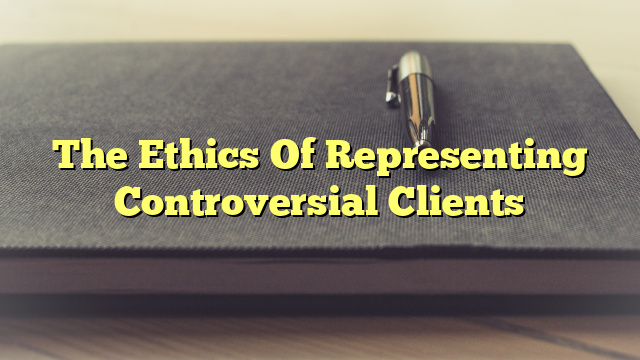What is a lawyer’s ethical duty to represent the unpopular client?
A lawyer’s ethical duty to represent an unpopular client is the same as for any other client. The lawyer must represent their client to the best of their ability, without discrimination. The lawyer must not allow any personal or political bias to affect their professional judgment or their client’s case. The lawyer must make sure that they are competent to handle the case, and that they handle the case with the highest degree of care, competence, and skill.
Would it be unethical for an attorney to refuse to represent such a client?
Yes, it would be unethical for an attorney to refuse to represent an unpopular client. Refusing to represent a client based on their views or beliefs is a form of discrimination and is prohibited by the American Bar Association’s Model Rules of Professional Conduct. Attorneys must provide competent representation to all clients, regardless of their views or beliefs.
What are three ethical dilemmas faced by attorneys?
1. Confidentiality: Attorneys must maintain the confidentiality of the information they receive from their clients. They must protect the client’s interests even if those interests conflict with their own. This can create a dilemma when the attorney is asked to disclose confidential information that could be damaging to their client.
2. Conflict of Interest: Attorneys must refrain from representing a client when they have a conflict of interest. This can be difficult to assess when a client’s interests conflict with those of the attorney or a third party. An attorney must make sure that they are not taking on a case in which their own interests conflict with those of their client.
3. Zealous Advocacy: Attorneys must zealously advocate for their clients’ interests. This can lead to ethical dilemmas when the attorney believes that their client is making a decision that is unwise or contrary to their best interests.
What are examples of unethical opposing attorney behavior?
Examples of unethical opposing attorney behavior are: intentionally misrepresenting facts, making misleading statements or arguments, engaging in harassing tactics, or attempting to influence the outcome of a case through illegal or improper means. Additionally, attorneys must refrain from making personal attacks or discussing irrelevant matters that could prejudice the case. Attorneys must also refrain from making disparaging comments or threats of legal action against opposing parties or their attorneys.
In conclusion, attorneys must uphold a high ethical standard when representing a client, even if the client is considered controversial. Attorneys have an ethical duty to maintain confidentiality and to zealously advocate for their clients’ interests. It would be unethical for an attorney to refuse to represent an unpopular client, and attorneys must refrain from engaging in unethical opposing attorney behavior.


Utilising controversial clients? Unethical!